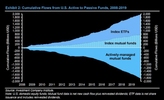- Joined
- 3 July 2009
- Posts
- 27,879
- Reactions
- 24,950
There is always the option for the Government to nationalise the Industry Funds I would think, as they are not for profit there are no shareholders. I'm guessing it wouldn't be too hard @qldfrog . 
Just make them roll it over into the future fund.
Just make them roll it over into the future fund.



